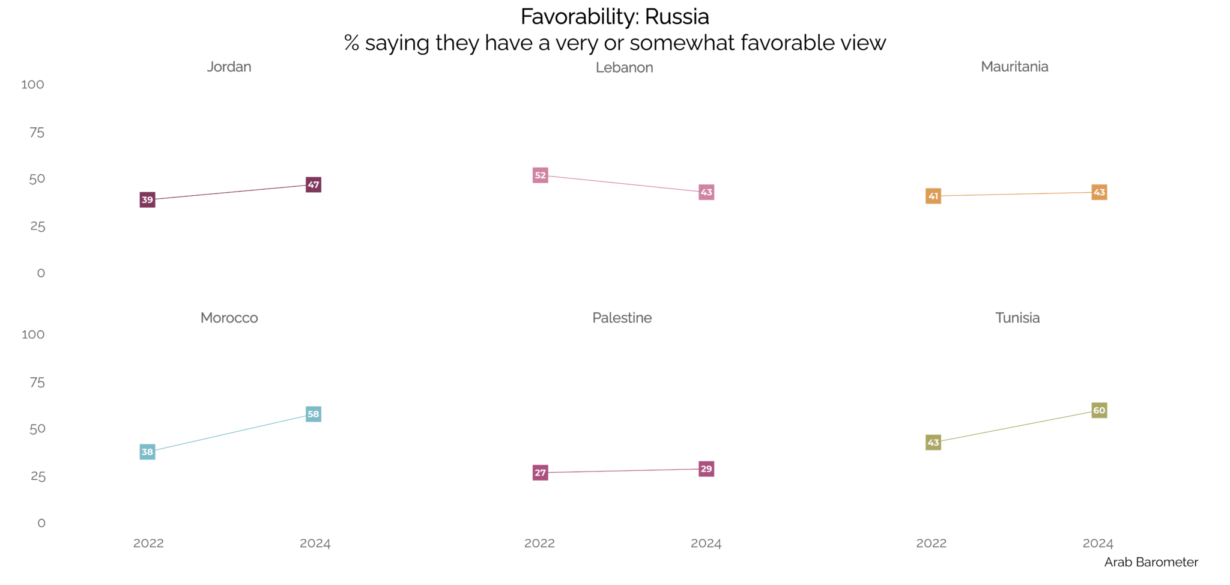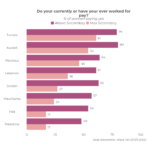
Russia’s attempts to reestablish its footing in the Middle East and North Africa (MENA) over the past decade have engendered few changes in regional public opinion towards the country. Findings from Arab Barometer’s latest wave of data (2023-2024) reveal that MENA publics’ attitudes towards Russia have been unaltered by its invasion of Ukraine, though outright majorities of citizens in surveyed countries do not support Russia’s war there. Nor has Russia’s attempt to use the Israel-Hamas war in Gaza to position itself against the U.S. (and more broadly the “West”) seem to have resoundingly reverberated with public opinion in surveyed countries. Unlike regional views of China[i], which have become more favorable as a punishing mechanism against the U.S., Russia’s posturing on this regional crisis to promote its image mostly has fallen on deaf ears.
Arab Barometer’s eighth wave has collected data from nationally representative, face-to-face surveys of citizens ages 18 and over in seven countries: Jordan (November 2023-January 2024), Kuwait (February-March 2024), Lebanon (February-April 2024), Mauritania (February-March 2024), Morocco (December 2023-January 2024), the Palestinian Territories (September- October 2023), and Tunisia (September-November 2023). Notably, data collection in Palestine concluded on the eve of 7th October, and in Tunisia, exactly half of all surveys were conducted before and half after this date.
In 2024, the majority of citizens in Tunisia (60 percent) and Morocco (58 percent) and nearly half in Kuwait (49 percent) and Jordan (47 percent) have a very or somewhat favorable view of Russia. Fewer citizens share the same opinion in Lebanon and Mauritania (43 percent in each) and Palestine (29 percent). Between 2022 and 2024, favorable views of Russia increased slightly in Jordan (+8 percentage points) and more dramatically in Tunisia (+17 percentage points) and Morocco (+20 percentage points). Over the same time period, views remained unchanged in Palestine and Mauritania and fell by 9 percentage points in Lebanon.
Read full article at Manara Magazine


